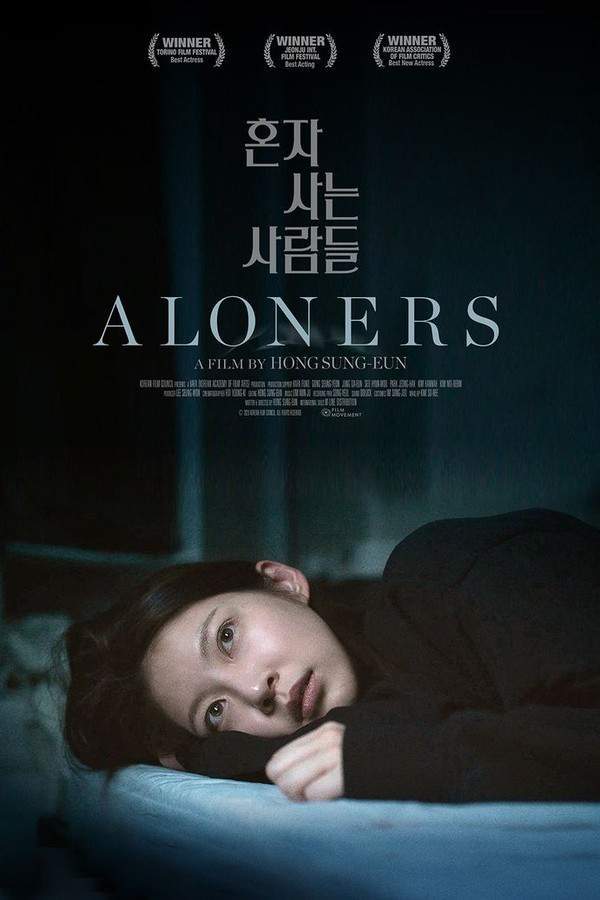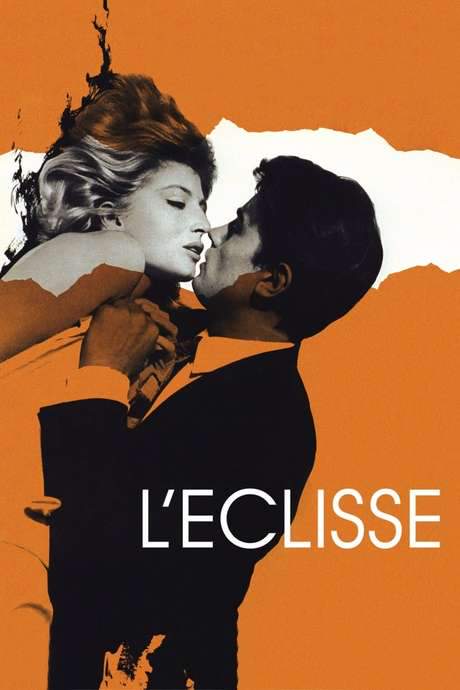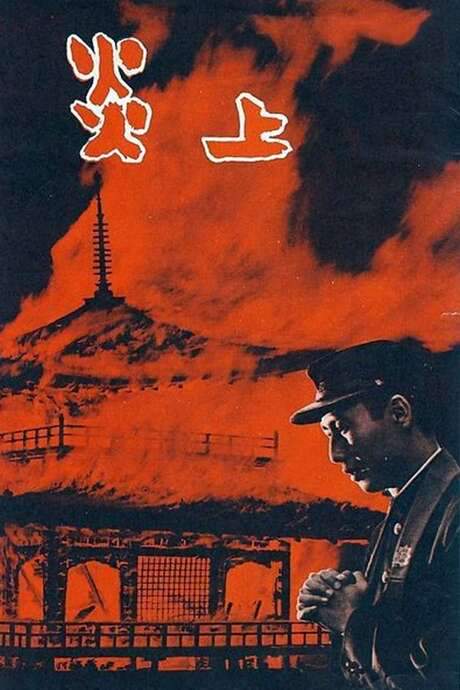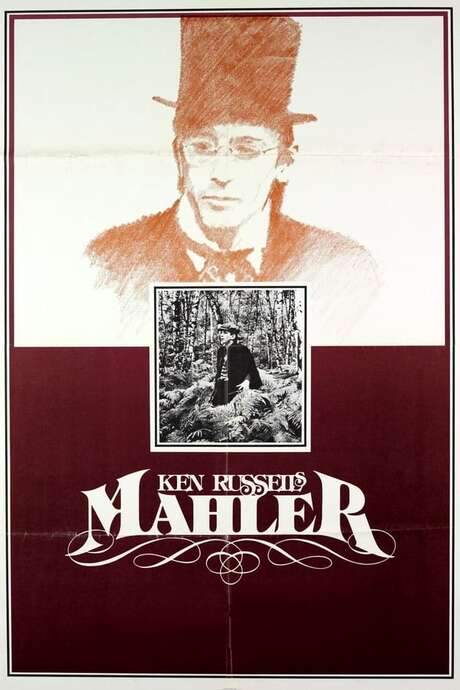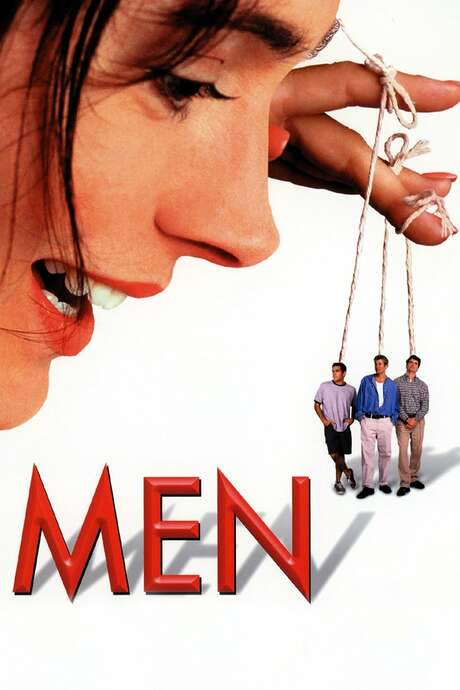
Every Man for Himself
Year: 1980
Runtime: 87 mins
Language: French
Director: Jean-Luc Godard
A look at the sexual and professional lives of three people — a television director, his ex-girlfriend, and a sex worker.
Warning: spoilers below!
Haven’t seen Every Man for Himself yet? This summary contains major spoilers. Bookmark the page, watch the movie, and come back for the full breakdown. If you're ready, scroll on and relive the story!
Every Man for Himself (1980) – Full Plot Summary & Ending Explained
Read the complete plot breakdown of Every Man for Himself (1980), including all key story events, major twists, and the ending explained in detail. Discover what really happened—and what it all means.
Paul Godard, Jacques Dutronc, a filmmaker, and his estranged girlfriend Denise Rimbaud, Nathalie Baye, are introduced in a tense prologue: Paul leaves the deluxe hotel where he has been staying and rebuffs the advances of a male hotel attendant.
The Imaginary
Denise begins to carve out an independent life away from Paul. She takes a manual job at a local paper run by an old friend, perhaps an old lover, in a country town, and she also secures a room on a farm in exchange for helping with the cattle. She starts drafting a new project that could become a novel, while juggling her responsibilities at the television station where she and Paul worked and trying to find a new tenant for the city apartment they shared. Realizing she is late to collect the author Marguerite Duras for an interview, she phones Paul to ask if he can handle it for her, and he agrees, though not with enthusiasm.
Fear
Paul fears life without Denise, perhaps life itself. After collecting his surly daughter Cécile, Cécile Tanner, from soccer practice, he asks the coach if he has ever felt like touching or having sex with his own daughter. He then fulfills a favor for Denise by picking up Marguerite Duras from a local college, where she was due to speak. When Duras refuses to give the talk (her voice is heard but she isn’t shown), Paul reads aloud some of her notes in which she says she only makes films because she lacks the courage to do nothing. > she only makes films because she lacks the courage to do nothing. The celebrity then gets Paul to take her back to the airport, and Denise’s anger at losing the interviewee lands squarely on him.
That evening, as Cécile’s birthday is celebrated with her mother, Paul’s past and present collide: his ex-wife wants money, and the girl wants presents. After another heated exchange marked by his alienation and crude innuendo, he parts ways with Denise in a bar. Later, in a late-night cinema queue, he is approached by the prostitute Isabelle, the character played by Isabelle Rivière, Isabelle Huppert.
Commerce
Isabelle’s section follows her pursuit of financial independence in a world that treats her as a commodity. After spending the night with Paul, she is briefly unsettled by a pimp who reminds her that independence carries a cost—he takes half of her earnings. Back at a shared apartment with other women, Isabelle’s younger sister arrives asking for money because her lover and his associates have just been jailed for jewel robbery. Isabelle refuses at first, but the sister asks if she can help launch her in prostitution, and Isabelle agrees to coach her for a month for 50% of the proceeds. While continuing to service a range of clients—some with inventive demands, like a businessman who orchestrates a four-person encounter at his desk—Isabelle also searches for her own place to live. An old school friend she encounters in a hotel corridor offers a courier opportunity, but the boss of that operation finds Isabelle too naive for the job.
A visit to inspect an apartment leads Isabelle to discover it’s Denise’s place, and Paul is there trying to rekindle their relationship. The two women form an immediate bond.
Music
In the coda, Isabelle seems to be thriving in her new home, while Denise has moved forward with her life. Paul, after a period of drifting, encounters his ex-wife and daughter again and asks to spend more time with them. He steps backward in a final, poignant moment and walks into the path of an oncoming car. Isabelle’s sister—now depicted as a prostitute—abandons the scene with the driver of the car. Denise’s ex-spouse urges Cécile to walk away, signaling a break from the past. As they depart, a small orchestra in a garage yard plays the film’s recurring theme, underscoring a sense of memory and reconciliation that threads through the narrative.
Last Updated: October 09, 2025 at 14:22
Explore Movie Threads
Discover curated groups of movies connected by mood, themes, and story style. Browse collections built around emotion, atmosphere, and narrative focus to easily find films that match what you feel like watching right now.
Interwoven Lives Movies like Every Man for Himself
Stories where fragmented perspectives reveal a shared sense of modern loneliness.If you enjoyed the interconnected narrative of Every Man for Himself, explore more movies like it that weave together multiple character perspectives. These similar dramas delve into themes of alienation and loneliness, using complex structures to paint a poignant picture of modern disconnection.
Narrative Summary
Films in this thread typically eschew a single protagonist in favor of a mosaic structure, blending the separate yet parallel journeys of several characters. The narrative unfolds through their individual struggles with isolation, disillusionment, or a search for meaning, often revealing how their lives indirectly impact one another or reflect a common societal malaise.
Why These Movies?
These movies are grouped together because they share a specific narrative approach and thematic focus. They use interlocking stories to build a collective mood of melancholic introspection, prioritizing character study over plot and leaving the audience with a contemplative, often bittersweet, feeling about human connection.
Movies about Artistic Disillusionment like Every Man for Himself
Character studies of creators grappling with the emptiness of their work and lives.For viewers who appreciated the themes of artistic disillusionment in Every Man for Himself, this list gathers similar character-driven dramas. Discover movies like this one that explore the quiet despair of creators and professionals questioning their life's work and searching for authenticity.
Narrative Summary
The narrative pattern follows a protagonist (or protagonists) whose professional identity is central to their self-worth. As the story progresses, they confront the hollowness of their success or the compromises they've made, leading to a deeply introspective journey. The conflict is often internal, with the plot serving to expose their growing disillusionment rather than provide external resolutions.
Why These Movies?
These films are united by their profound exploration of a specific existential crisis: the disillusionment of the artist or professional. They share a melancholic tone, slow pacing that allows for deep character study, and a heavy emotional weight derived from the character's confrontation with their own emptiness and failed aspirations.
Unlock the Full Story of Every Man for Himself
Don't stop at just watching — explore Every Man for Himself in full detail. From the complete plot summary and scene-by-scene timeline to character breakdowns, thematic analysis, and a deep dive into the ending — every page helps you truly understand what Every Man for Himself is all about. Plus, discover what's next after the movie.
Every Man for Himself Timeline
Track the full timeline of Every Man for Himself with every major event arranged chronologically. Perfect for decoding non-linear storytelling, flashbacks, or parallel narratives with a clear scene-by-scene breakdown.

Characters, Settings & Themes in Every Man for Himself
Discover the characters, locations, and core themes that shape Every Man for Himself. Get insights into symbolic elements, setting significance, and deeper narrative meaning — ideal for thematic analysis and movie breakdowns.

Every Man for Himself Spoiler-Free Summary
Get a quick, spoiler-free overview of Every Man for Himself that covers the main plot points and key details without revealing any major twists or spoilers. Perfect for those who want to know what to expect before diving in.

More About Every Man for Himself
Visit What's After the Movie to explore more about Every Man for Himself: box office results, cast and crew info, production details, post-credit scenes, and external links — all in one place for movie fans and researchers.

Similar Movies to Every Man for Himself
Discover movies like Every Man for Himself that share similar genres, themes, and storytelling elements. Whether you’re drawn to the atmosphere, character arcs, or plot structure, these curated recommendations will help you explore more films you’ll love.
Explore More About Movie Every Man for Himself
Every Man for Himself (1980) Scene-by-Scene Movie Timeline
Every Man for Himself (1980) Movie Characters, Themes & Settings
Every Man for Himself (1980) Spoiler-Free Summary & Key Flow
Movies Like Every Man for Himself – Similar Titles You’ll Enjoy
Despite the Night (2015) Complete Plot Breakdown
The Pornographer (2001) Complete Plot Breakdown
Men in the Nude (2006) Full Movie Breakdown
Not That Kind of Guy (2020) Movie Recap & Themes
All Work No Play (2020) Full Summary & Key Details
Each Other (2021) Full Movie Breakdown
Men… (1985) Spoiler-Packed Plot Recap
My Man (1996) Plot Summary & Ending Explained
All Nudity Shall Be Punished (1973) Spoiler-Packed Plot Recap
Every Breath (1994) Film Overview & Timeline
Another Man (2008) Story Summary & Characters
Men (1997) Detailed Story Recap
Watch Out (2008) Detailed Story Recap
Naked Men in the Woods (2022) Movie Recap & Themes
All Women Are Bad (1969) Full Summary & Key Details





